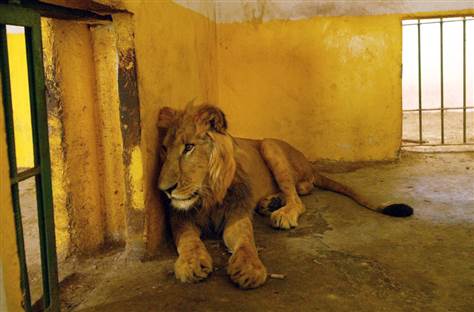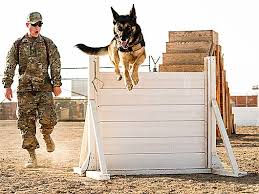
U.S. veterinary teams and animal welfare workers are poised to go to the aid of the zoo animals left in Baghdad as soon as travel restrictions are lifted.
“Not a lot is known about the status of the animals, although more is being learned each day,” said David Jones, director of the North Carolina Zoo. Zoo professionals originally thought there might be several hundred animals at El Zawra, the city’s main zoo, but now believe the number may be only several dozen.
“It seems like only the big cats and some of the larger animals, like bears, survived. A lot of animals were stolen and quite possibly eaten during the looting,” he said. “That certainly occurred in Kabul, Afghanistan, where a number of those animals were taken and put in the pot. We’ve had reports of camels wandering around; they’ll be ok, they can just nibble on whatever’s around.”
Jones, who has considerable experience working in the Middle East, is coordinating fund raising and relief efforts in the United States under the auspices of the American Zoological and Aquarium Association (AZA). The AZA performed a similar role for the Kabul Zoo in Afghanistan after the fall of the Taliban.
The AZA is working closely with two animal welfare groups, the World Society for the Protection of Animals (WSPA), based in New Bedford, Massachusetts, and the Society for the Protection of Animals Abroad (SPANA). WSPA, which frequently responds to animal welfare crises under the auspices of the United Nations, is working with the U.S. Army to get food to the animals. SPANA has mobile veterinarian labs in Jordan and Syria poised to go in.
“We don’t expect the condition of the animals in the zoo to be quite as critical as in Kuwait, where some of them had bullet holes, and animals were down and dying in their cages,” said John Walsh, director of WSPA. “The first priority will be getting them food. Supplies from the Kuwait zoo should be flown in today.”
Assessing the Animals’ Needs
The main zoo in Baghdad has undergone extensive renovations, although it is still built in the iron bars and concrete style of the 1950s. The collection housed goats, chimps, wolves, ducks, geese, flamingoes, roosters, hens, vultures, camels, and horses, in addition to the exotic animals like lions and bears.
In addition to the main zoo, two smaller collections were found.
Uday Hussein, Saddam’s son, had a private collection at one of the palaces, housing cheetahs, lions, and sheep, “although the sheep may have been there to feed the collection,” said Jane Ballentine, a spokesperson for AZA. There is also a small group of animals—a bear, a camel, and some domestic animals like chickens and dogs—at an amusement park on the edge of the city.
A lot of the animals taken during the looting were probably taken for trade or to sell, said Walsh.
“The private collections are going to be extensive,” said Walsh. “Arab people often keep private zoo gardens, even if it’s maybe only one or two exotic animals. A lot of animals were taken from Kuwait at the time of the invasion; full-blooded Arabian horses, large exotic animals, so we expect to find them scattered around.”
Walsh, in conjunction with Lt. Col James D. Fikes, the military veterinarian with the U.S. Army who is in charge of responding to the zoo animal disaster, is trying to get a vet from the Saudi zoo flown into Baghdad with tranquilizing equipment so that the large exotic animals can be rounded up and consolidated at the main zoo.
Coordinating Relief Efforts
“There are quite a few experienced zoo people in the Middle East,” said Jones. “Our job will be coordinating information and resources, so we don’t get a lot of individual efforts that, though well-meaning, can confuse the picture.”
The AZA mounted a similar effort to help the zoo in Kabul, Afghanistan, when the Taliban fell, raising U.S. $530,000 in a little under 12 weeks.
“In Kabul, the few staff the zoo did have there were really dedicated and never left the animals. They stayed throughout the fall of the Taliban and the American invasion,” said Ballentine. “In Baghdad, American and British troops, as well as the Iraqi Republican Guard, used the zoo as a staging area, and the zoo people were forced to leave. So the biggest issue will be whether those folks will be able to come back and take over the day-to-day care of the animals, getting food, the right kind of food, and shelter for the animals.
Purina, which has a scientific diet for all zoo animals, will donate the food, said Walsh. “They’ve always been good about responding to crises like these,” he said.






